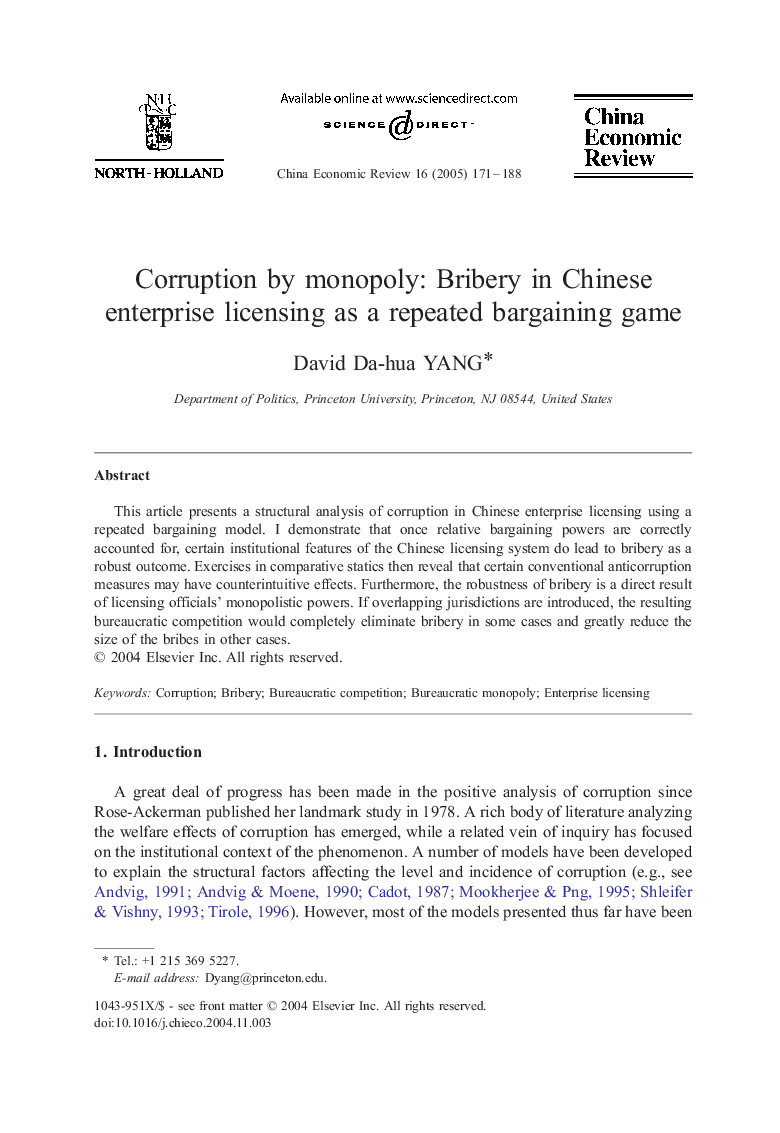| Article ID | Journal | Published Year | Pages | File Type |
|---|---|---|---|---|
| 9547379 | China Economic Review | 2005 | 18 Pages |
Abstract
This article presents a structural analysis of corruption in Chinese enterprise licensing using a repeated bargaining model. I demonstrate that once relative bargaining powers are correctly accounted for, certain institutional features of the Chinese licensing system do lead to bribery as a robust outcome. Exercises in comparative statics then reveal that certain conventional anticorruption measures may have counterintuitive effects. Furthermore, the robustness of bribery is a direct result of licensing officials' monopolistic powers. If overlapping jurisdictions are introduced, the resulting bureaucratic competition would completely eliminate bribery in some cases and greatly reduce the size of the bribes in other cases.
Keywords
Related Topics
Social Sciences and Humanities
Economics, Econometrics and Finance
Economics and Econometrics
Authors
David Da-hua YANG,
